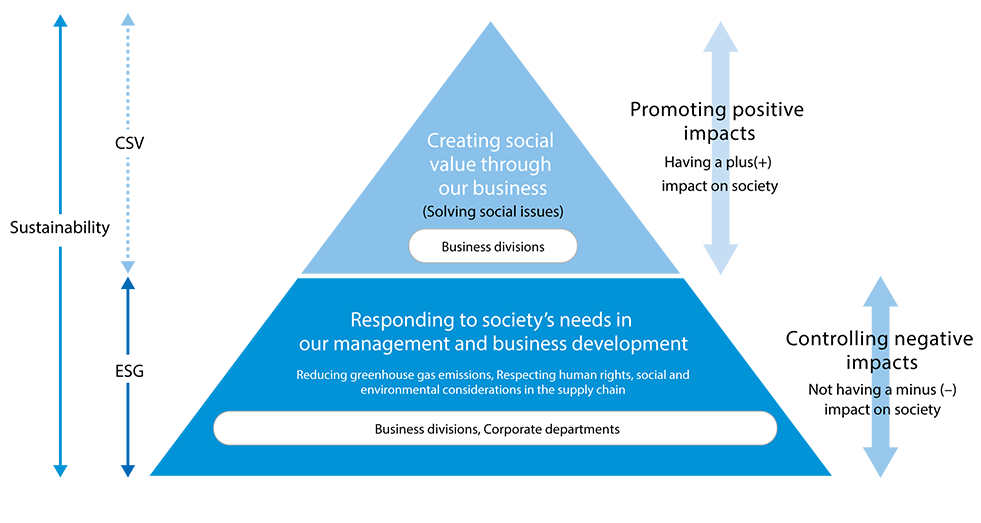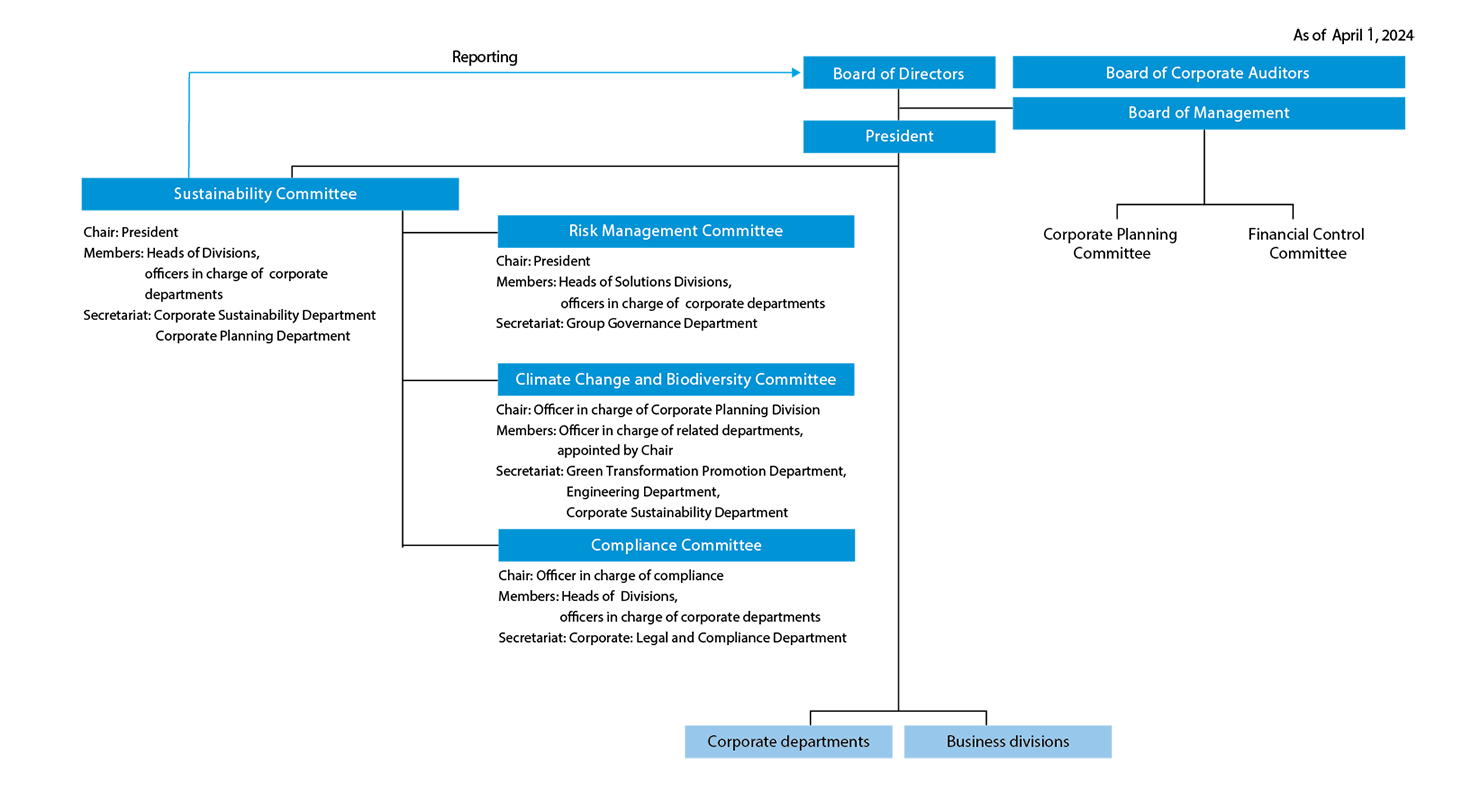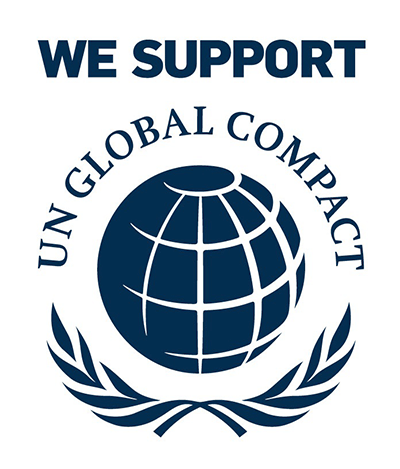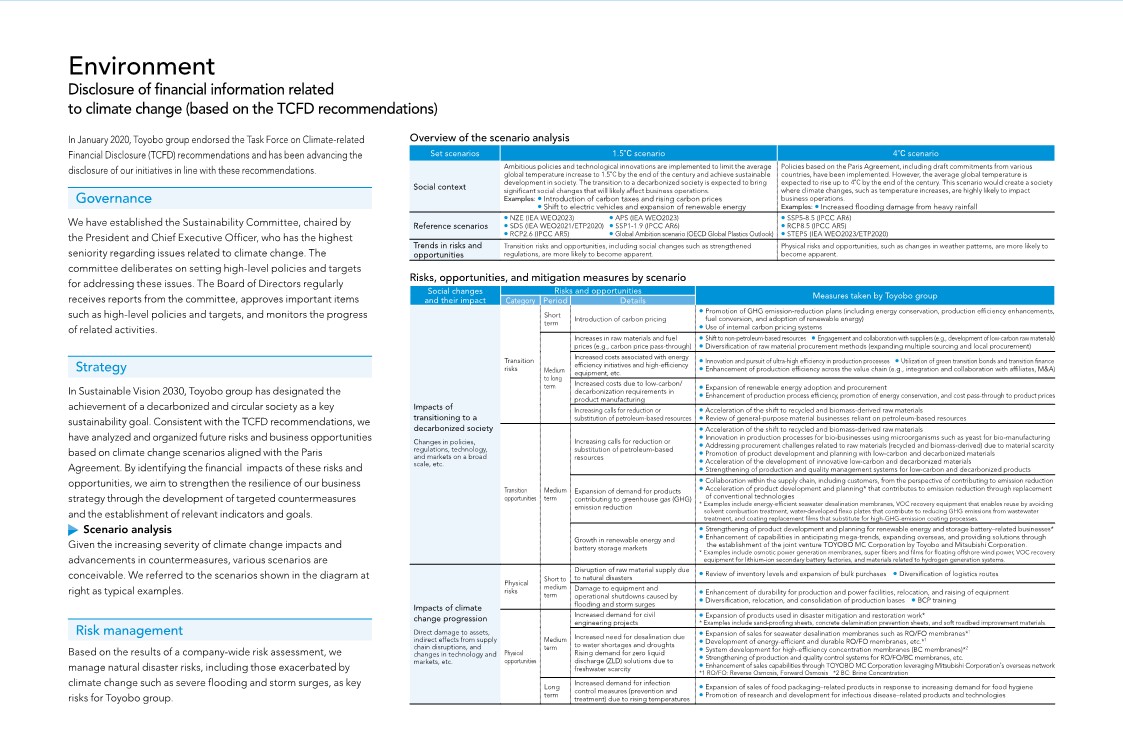Sustainability Management
Policy and approach
Approach
Since being founded in 1882 as Japan's first large-scale spinning mill company in the private sector, Toyobo group has addressed a range of issues as a good member of society through the supply of clothing fibers. We have also expanded and grown with the times and contributed to solving social issues with a focus on the environment in our aim to realize better lives for people around the world.
In 2019, we redefined our corporate philosophy “Jun-Ri-Soku-Yu (adhering to reason leads to prosperity).” After many discussions based on it, we enhanced our corporate philosophy framework TOYOBO PVVs. Through this discussion process, we were convinced that the essence of Toyobo group's activities to date lies in making a contribution to ensuring the sustainability of people and the earth.
We announced our Sustainable Vision 2030 (long-term vision) in May 2022.
Contributing to the realization of a sustainable society is the embodiment of Toyobo group's vision “We will continue to create the solutions needed by people and the earth with materials and science.” This expresses Toyobo group's approach to sustainability.
At the same time, it is important to continually enhancing corporate value. Toyobo group's contribution to realizing a sustainable society generates profits leading to enhancement of the group's corporate value. This enhancement of corporate value leads in turn to the next level of realization of a sustainable society through growth in the group's business. Maintaining this positive spiral is what Toyobo group regards as sustainability.
To meet the expectations of stakeholders, Toyobo group will further enhance its dissemination of information as well as taking active initiatives so that all employees feel personally involved in sustainability in order to promote companywide activities as a united force.
Policy
- Management that takes the sustainability of society into consideration, and thus management that increases the sustainability of our company
- Sustainability that builds a solid management foundation: the axis of our management foundation (ESG)
- Sustainability that strengthens our competitiveness and drives growth: the axis of our business (CSV)
Conceptual Framework-Sustainability, CSV and ESG

Sustainability management structure
Toyobo group has established the Sustainability Committee, with the President serving as chairperson. Committee meetings were held six times in fiscal 2024 to review the progress of the group’s sustainability activities, with deliberations covering themes including 1) participation in the GX League, 2) sharing the value creation story, 3) group-wide risk management, and 4) efforts to respect human rights within the group and across the supply chain. In addition, under this committee, we have established the Risk Management Committee, the Climate Change and Biodiversity Committee, and the Compliance Committee to facilitate cross-company discussions.
Sustainability Promotion Structure

Our sustainability activities
Since our group’s founding by Eiichi Shibusawa, we have taken the philosophy of one of his mottoes, “Jun-Ri-Soku-Yu (Adhering to reason leads to prosperity),” as the basis for our concept that we grow our own business by enriching society. By putting this into practice, we have anticipated modern CSV.
Since fiscal 2021, we have been moving ahead with activities under a full-fledged sustainability management orientation. Our efforts have been particularly directed toward carbon neutrality, the circular economy, human rights, human capital, and biodiversity, and upon formulating these strategies, we have specified milestones.
| Period | Initiatives and their purpose |
|---|---|
| Jan. 2020 |
|
| Apr. 2020 |
|
| Apr. 2021 |
|
| Apr. 2022 | Established the Corporate Sustainability Division. |
| May. 2022 |
|
| Nov. 2022 | Joined the 30 by 30 Alliance for Biodiversity |
| Dec.2022 | Obtained Science based target(SBT) certification |
| Apr. 2023 | Restructured the Sustainability Committee |
| June. 2023 |
|
| Jul. 2023 |
|
| Sep. 2023 |
|
| Oct. 2023 |
|
| Dec. 2023 | Issued the second round of sustainability-linked bonds |
| Jan. 2024 | Joined the industry-government-academia consortium, Circular Partners |
Participation in initiatives
UN Global Compact (UNGC)
In January 2020, we became a signatory to the United Nations Global Compact (UNGC) and joined the Global Compact Network Japan, which comprises Japanese companies and organizations that are UNGC signatories. We have done so because we agree with the principle of solving global issues and achieving sustainable growth as a responsible corporate citizen.
Moreover, we participate in subcommittees of the Global Compact Network Japan. Starting in fiscal 2025, we will participate in the Business & Human Rights Accelerator (Japan Edition) of the Human Rights Subcommittee to gather information on international human rights issues and other matters that companies should be aware of. We will deepen our understanding of human rights challenges and work toward identifying relevant human rights issues at our business locations.
Moving forward, we will strengthen our efforts in keeping with the Ten Principles of the UNGC as we contribute to the realization of a sustainable society.

The Ten Principles of UNGC
| Human Rights | Principle 1: Businesses should support and respect the protection of internationally proclaimed human rights; and |
|---|---|
| Principle 2: make sure that they are not complicit in human rights abuses. |
|
| Labour | Principle 3: Businesses should uphold the freedom of association and the effective recognition of the right to collective bargaining; |
| Principle 4: the elimination of all forms of forced and compulsory labour; |
|
| Principle 5: the effective abolition of child labour; and |
|
| Principle 6: the elimination of discrimination in respect of employment and occupation. |
|
| Environment | Principle 7: Businesses should support a precautionary approach to environmental challenges; |
| Principle 8: undertake initiatives to promote greater environmental responsibility; and |
|
| Principle 9: encourage the development and diffusion of environmentally friendly technologies. |
|
| Anti-Corruption | Principle 10: Businesses should work against corruption in all its forms, including extortion and bribery. |
Task Force on Climate-related Financial Disclosures (TCFD)
Recognizing the scale of the impact of climate change on our group and stakeholders, we have identified a “decarbonized society and circular society“ as one of our materialities. In January 2020, we announced our support for the recommendations made by the Task Force on Climate-related Financial Disclosures (TCFD), and have been working on initiatives and disclosures that follow them.
Based on the below 1.5℃ scenario and the 4℃ scenario, we identified climate change-specific risks and opportunities for the group. By identifying the financial impacts of these risks and opportunities, we aim to strengthen the resilience of our business strategy through the development of targeted countermeasures and the establishment of relevant indicators and goals. For details, please refer to the integrated report.

For more information on the initiatives in which we are participating, please see below.







